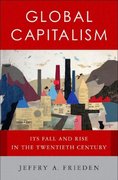Question
Problem 2 After your successful 8-year stint as the head of a foreign central bank, you decide to return to the United States. You realize
Problem 2 After your successful 8-year stint as the head of a foreign central bank, you decide to return to the United States. You realize that through your job you've amassed a sizable international network of wealthy financiers and bankers. So you decide to take advantage of this network by starting a hedge fund. You hire a team of fresh UO econ and business graduates, and raise $500M of initial capital from your wealthy friends/acquaintances. Your fund, Duck Capital, specializes in real estate investment. Part (a) (5 pts.) When you first raise $500M, you deposit all of it in your account with Gold- man Sachs - in other words, your investment portfolio is completely liquid. Through some private information sources, you know that in a month the United States will be hit with positive oil price shocks (oil prices will spike due to exogenous causes). You also know that the Federal Reserve is cur- rently very concerned with inflation, and wants to maintain the inflation rate at the current level at all costs. Based on all of the above, should you starting investing in real estate now, or should you wait until after the oil price shock? Use as many graphs as you can - the more the better. Hint: How will the oil price shock and subsequent monetary policy shock affect asset prices? Part (b) (5 pts.) A year after the events described in Part (a), you decide to liquidate your real estate portfolio completely to restart with a clean slate. Turns out you've had an extremely profitable year of investing - your hedge fund's capital has gone up from $500M to $1B, implying an impressive 100% annual rate of return on your investment portfolio. You get many expensive gifts in the mail from your clients as thanks for your superb performance. One day, after getting back from lunch with a prospective client, you're informed by your trusty team that US house prices have dropped massively due to some exogenous causes. You also know through your private con- nections that the Federal Reserve is highly likely to conduct countercyclical monetary policy. Should you reallocate your portfolio to real estate before or after the Fed has the opportunity to make a decision on a potential
monetary policy change? Use as many graphs as you can - the more the better. Hint: How will the Fed's monetary policy change affect asset prices?
If you cannot post graphs just an explanation of what happens on some sort of relationship I can graph myself would be amazing. How do I enact monetary policy that will keep the inflation rate constant. How do I know if I should invest in real estate before or after the oil price shock?
Just an attempt at giving me some help would be awesome I am lost.
Step by Step Solution
There are 3 Steps involved in it
Step: 1

Get Instant Access to Expert-Tailored Solutions
See step-by-step solutions with expert insights and AI powered tools for academic success
Step: 2

Step: 3

Ace Your Homework with AI
Get the answers you need in no time with our AI-driven, step-by-step assistance
Get Started


